Recently, we have witnessed an increase in medical cannabis legalization across the United States. Therefore, it’s no surprise that CBD oil has also seen a meteoric rise in both use and popularity over the last few years.
However, understanding what CBD oil is poses a challenge, especially if you’re a complete newcomer to the world of cannabis. Is it marijuana? Is it hemp? What’s the difference between the two, if there are any? Is it safe to use? Is it effective? Is it legal?
We aim to answer all of these questions and more in this article.
CBD (Cannabidiol) Hemp Oil: What Is It?
First and foremost, it’s important to understand that CBD, short for cannabidiol, is a 100% naturally occurring compound located within the cannabis plant. It’s one of dozens of other compounds known as cannabinoids (such as THCV, CBC, CBG, etc.) that exist in cannabis. However, most of them are only available in tiny concentrations.
CBD and THC are generally considered the most important active cannabis components, at least concerning their effects on the human body. There are major differences between these two compounds — primarily because one of them (CBD) does not get you high.
Is CBD Marijuana?
CBD is an active chemical compound found in the marijuana plant. Therefore, it isn’t correct to say that “CBD is marijuana” – it’s just a part of it. When most people think of marijuana, they think of regular weed that you can roll into a joint and smoke to get high. This is NOT how CBD works.
Instead, most CBD products on the marketplace are produced from raw hemp material. Hemp is a variety of the Cannabis sativa plant that is bred to produce high levels of CBD and low levels of THC.
There are several different ways to use CBD, including oils, edibles, creams, and e-liquids – none of which produce the stereotypical marijuana “high.”
What Are the Effects of CBD?
CBD produces no intoxicating high. Most people who use CBD daily generally do so to help manage the symptoms of a medical condition. Many individuals use it to replace over-the-counter or prescription drugs entirely. There is evidence that CBD could interact with certain prescription and OTC drugs. Therefore, consult with a physician before using it if you’re currently taking traditional medication.
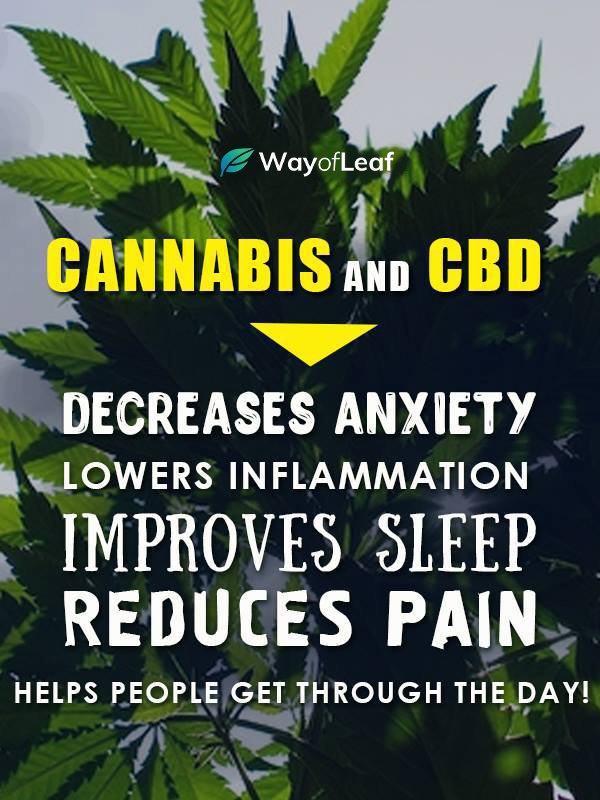
CBD users often consume the cannabinoid to help with chronic pain, anxiety, depression, arthritis, and insomnia. However, CBD could also help with dozens of other disorders as well.
What Is the Endocannabinoid System?
You must have a general understanding of the endocannabinoid system, or ECS, to understand how CBD oil could be useful.
The ECS is a biological pathway found in the human body. It includes a network of neurotransmitters and receptors that are very similar to the active compounds found in cannabis.
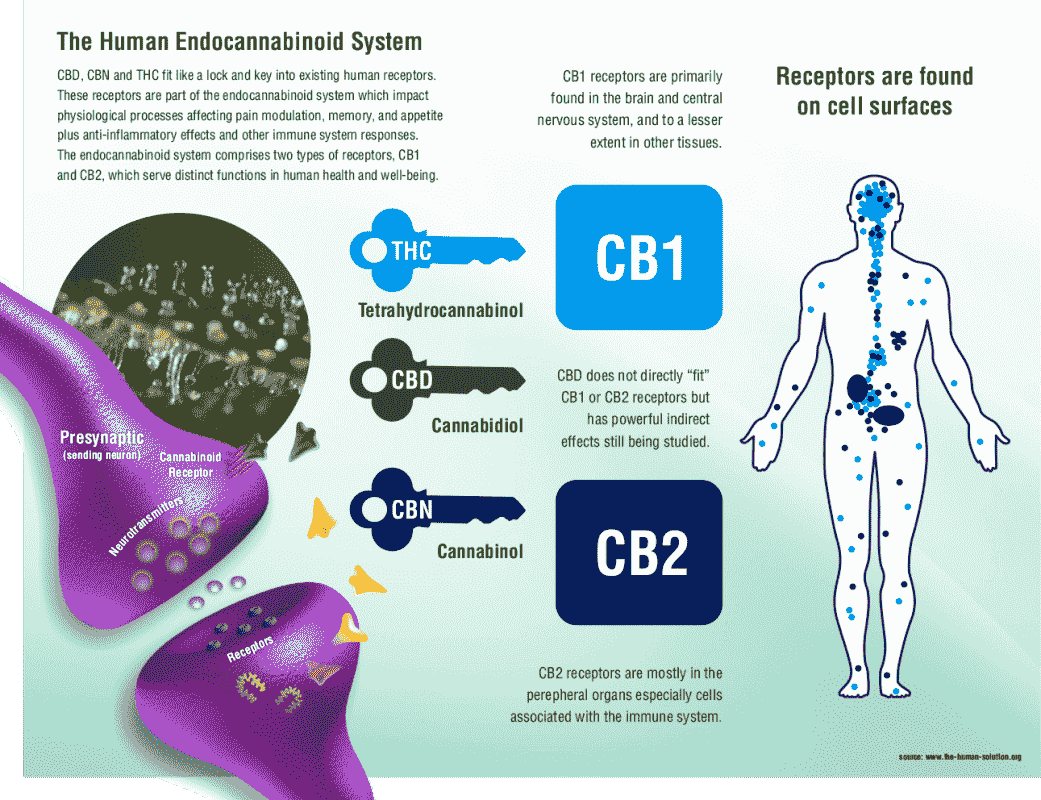
These compounds work together with cell and tissue types throughout the body. They help mediate, regulate, and control things like inflammation, the pain and immune response systems, neurogenesis (new cell production), apoptosis (programmed cell death), and even psychological behavior and response.
The naturally occurring neurotransmitters and receptors that make up the endocannabinoid system are extremely widespread throughout the body. So much so that doctors have labeled it as perhaps the most “central component of the health and healing of every human being.”
We haven’t heard much about it over the years because it was only recently discovered – in the 1990s, to be exact, by famous Israeli scientist Dr. Raphael Mechoulam.
CBD works by interacting with ECS receptors in the body’s various cell, organ, and tissue systems on a therapeutic level. Its receptors are found throughout the body. Therefore, it makes sense that cannabis – and CBD oil in particular – could help tackle any range of medical challenges.
We’ll take a closer look at the relationship between CBD and the ECS later in the article.
What Are the Potential Health Benefits of CBD?
CBD interacts on a cellular level with essentially every system in the human body. In theory, then, the cannabinoid could have countless potential benefits. There are more than 20,000 published scientific studies involving cannabinoids, according to an article released by NORML, the National Organization for the Reform of Marijuana Laws.
As per this research, CBD could help with the following medical conditions and associated symptoms:
- Seizures / Epilepsy
- Anxiety / Depression
- Insomnia (and other sleep disorders)
- Pain / Inflammation
- Diabetes
- Neuropathy
- Cardiovascular disease
- Arthritis
- Spasticity / Muscle spasms
- Multiple sclerosis
- Fibromyalgia
- PTSD
- Stress
This is far from being a complete list. It’s also important to note that research is still ongoing.
CBD Oil: What Is It?
CBD oil is the end product of pure CBD extracted from, typically, the hemp plant. But how is it extracted?
Many companies opt for CO2 extraction. This process uses pressurized carbon dioxide to separate the plant’s essential phytonutrients, like cannabinoids and terpenes. Unfortunately, high-quality CBD extraction is not a very easy – or cheap – thing to do. The pressurized CO2 equipment used is extremely expensive; however, this process ensures no contaminants ruin the final product.
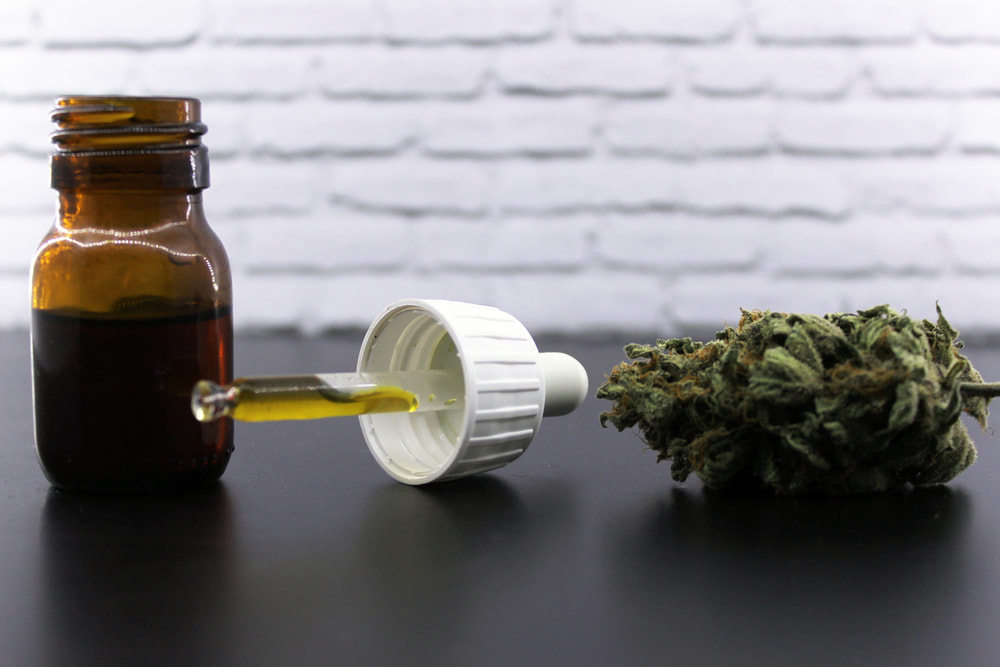
Interestingly, pure CBD isolate exists as a crystalline solid, not dissimilar from salt in terms of appearance. Therefore, CBD oil needs a molecular “carrier” that allows the body to ingest the compound easily and metabolize it thoroughly and efficiently. In simple terms, this means pairing CBD with an oil such as hemp seed, MCT, or olive oil.
Oils are one of the simplest ways to consume CBD. Users simply have to place the liquid underneath the tongue for at least 30 seconds before swallowing the remaining oil. This allows the blood vessels in the mouth to absorb the CBD, and other compounds, helping them to reach the ECS system.
How CBD Oil Works
CBD oil works by interacting with the internal pathways of the body’s endocannabinoid system. The two primary endocannabinoids produced by the body are anandamide and 2-AG (otherwise known as 2-arachidonoylglycerol).
These molecules function by binding to their corresponding endocannabinoid receptors, including the CB-1 and CB-2 receptors. CB-1 is primarily located in the brain and central nervous system. Meanwhile, CB-2 is abundant in organ tissues and the immune response system.
Under normal circumstances (i.e., in a healthy, normally functioning body), there is a perfectly maintained endocannabinoid ratio to their receptors. When in sync, this ratio works tirelessly to ensure homeostasis on every single level.
As Dr. Dustin Sulak defines it in an educational article produced for NORML, endocannabinoids are responsible for ensuring homeostatic regulation on “every level of biological life – from the subcellular to the organism, and perhaps to the community and beyond.”
CBD and other cannabinoids help retain homeostatic regulation on ‘every level of biological life.’
However, disruptions in the endocannabinoid/receptor ratio can arise when the body experiences sickness or other “malfunctions.” These issues can come in any form, including physical injury, disease, tissue inflammation, and so on.
Sometimes, there are not enough endocannabinoids present in the body to bind to their corresponding CB-1 and CB-2 receptors. CBD oil can theoretically restore the natural cannabinoid/receptor ratio in such scenarios and return the affected system(s) to proper homeostatic health.
Is CBD Oil Legal?
One of the major concerns is whether or not CBD oil is legal to buy, ship, possess, and use. Unfortunately, the answer is ‘yes’ and ‘no.’ Whether CBD oil is legal depends on if it comes from hemp or marijuana. Both hemp and marijuana are classified under the scientific genus Cannabis.
Industrial hemp is a legal plant under the 2018 U.S. Farm Bill. Hemp does not contain high amounts of THC. If a cannabis plant is less than 0.3% THC by weight, it is classified as hemp. All other forms of cannabis are referred to as marijuana.
Fortunately for medicinal cannabis users, legal hemp contains useful quantities of CBD and other compounds like terpenes and flavonoids.
A CBD oil product sourced from legal industrial hemp is tolerated in most states. Obscure local and county laws muddy the waters in some locations. In states where cannabis isn’t legal, CBD products sourced from marijuana are illegal. Therefore, the vast majority of CBD on the market comes from hemp.
There are only a handful of manufacturers out there at the moment with the means to produce top-level CBD oil from raw hemp plants. Therefore, selecting the best CBD oils requires a lot of work, as there are plenty of sub-par products on the market.
Is It Safe to Take CBD Oil?
One of the main draws of using CBD oil over other pharmaceuticals (or even over-the-counter) drugs is the relative lack of side effects.
In 2017, the World Health Organization issued a massive statement to governments worldwide. The WHO effectively suggested that CBD has some usefulness as medicine while carrying minimal side effects. During the Expert Committee on Drug Dependence in November 2017, the organization released an official statement about the safety profile of CBD.
“… [based on evidence from studies, it has been determined that CBD oil] is safe, well-tolerated, and not associated with any significant adverse public health effects.” – WHO
Moreover, WHO went on to say that the active cannabis compound is “not associated with abuse potential, does not induce physical dependence, [and is] is generally well tolerated with a good safety profile.”
In short, to answer the question of “Is it safe to take CBD oil,” the answer is a resounding yes. Yet, incredibly, it still isn’t federally legal.
What Is the Difference Between Cannabinoids?
CBD and THC are by far the two most active cannabinoids in cannabis. However, there are upwards of 110 other cannabinoids known to exist in the plant. The majority of these are non-functional “pre-cursor” molecules involved in synthesizing the more prominent cannabinoids like cannabidiol and THC.
A few other cannabinoids besides THC and CBD could potentially produce therapeutic effects on the body. Compounds like THCV and THCA, for example, have shown promising potential for use in a wide range of medical ailments. Likewise, cannabinoids like CBDV, CBN, CBG, and CBC could produce anti-anxiety and anti-inflammatory effects on the body.
Multiple studies show that CBD oil works better than pure CBD isolate to help manage the symptoms of certain medical conditions. This is due to the “entourage effect.” According to this phenomenon, cannabis compounds work better when working together.
For example, a high-quality full-spectrum CBD oil should contain plenty of terpenes, flavonoids, and phytonutrients.
What Makes Hemp CBD Oil Unique?
One of the most frequently asked questions we get at WayofLeaf is, “What makes hemp CBD oil unique?”
It is challenging to tell the difference between “hemp CBD oil,” “cannabis CBD oil,” “marijuana CBD oil,” and so on. Slick marketing is often all that’s required for brands to make a sale. What you must focus on is the amount of cannabidiol in a product.
Beyond the hype, you must look for brands that provide third-party lab reports with their products. Otherwise, you don’t know if you’re getting CBD oil or hemp seed oil, which contains little cannabidiol.
The federal government routinely issues official warning letters to dozens of cannabis companies each year. They caution such brands for advertising “CBD oil” products that show hardly any CBD once tested in a lab.
A true, quality full-spectrum hemp CBD oil has upwards of 3% CBD by volume. It should also have other active hemp ingredients like phytonutrients, flavonoids, and terpenes. Hemp CBD is unique from regular marijuana because it contains hardly any THC.
Does CBD Oil Make Me High?
The answer is a resounding ‘No.’ Since cannabidiol doesn’t interact significantly with CB-1 receptors in the brain, its intoxicating effects are negligible.
Instead, CBD interacts directly and indirectly with CB-2 receptors in other parts of the body. These areas include organ systems, the immune system, the pain response system, and even the hormonal system, which is crucial in regulating all aspects of our health.
CBD has little interaction with CB-1 receptors in the brain, so it doesn’t cause an intoxicating high.
It is important not to confuse the terms “psychoactive” and “intoxicating.” CBD oil could help with anxiety, depression, insomnia, stress, and even psychosis and schizophrenia. Therefore, technically speaking, it does possess a psychoactive influence on brain behavior.
Other substances like caffeine and nicotine can also be described in this way. Therefore, it is more accurate to say that CBD is “non-intoxicating” rather than “non-psychoactive.”
(For a more detailed description of psychoactivity and CBD oil, check out our article on Dr. Adie Poe’s research for HABU health).
Does CBD Oil Have Side Effects?
Yes. There are some mild side effects reported among CBD users. These can include diarrhea, dizziness, dry mouth, and fatigue. However, such issues are relatively rare and are usually mild. Remember, the WHO has said that CBD didn’t cause any significant or concerning side effects.
CBD Oil Benefits
CBD oil appears to work best on pain (both chronic and acute), arthritis-induced pain and joint swelling, inflammation, anxiety, depression, and insomnia. However, it may benefit patients with a host of other medical issues, including multiple sclerosis (MS), fibromyalgia, epilepsy, and Alzheimer’s disease.
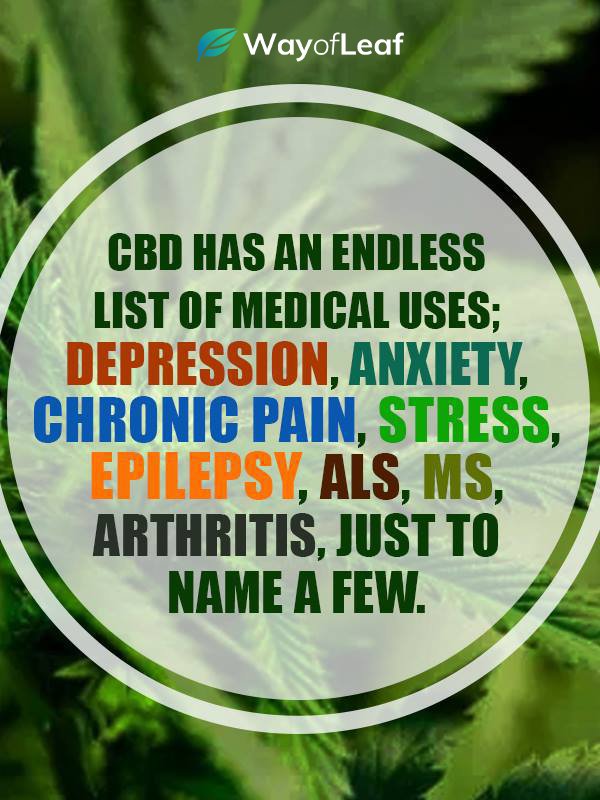
Let’s now look in-depth at the research surrounding CBD’s potential benefits on a selected handful of medical conditions.
Natural Pain Relief or Anti-Inflammatory Properties
The U.S. government currently holds a patent on CBD oil for its use as a neuroprotectant. A neuroprotectant protects the brain and its cells from nerve degeneration, which is common due to old age and diseases like Alzheimer’s, MS, and fibromyalgia.
DID YOU KNOW? The U.S. government has a patent on CBD oil as a neuroprotectant.
One of the most well-studied aspects of CBD to date revolves around its use as a pain reliever and an anti-inflammatory.
Inflammation is the underlying cause of dozens of disorders and medical challenges. Conditions ranging from diabetes to obesity to chronic pain, for example, have all responded well to the natural, anti-inflammatory effects of CBD oil.
Quitting Smoking and Drug Withdrawals
Research into CBD’s use as a means to wean off addictive substances has also yielded interesting results.
According to available research, addiction to alcohol, tobacco, pharmaceutical drugs, or deadly opiates is easier to overcome when using CBD oil daily. The exact reasons for its anti-addictive properties are not yet fully understood. However, it’s believed that restorative properties in serotonin and dopamine production lie at the root of CBD’s helpfulness.
Epilepsy
You may recall a major story that CNN covered about a young girl named Charlotte Figi. She had a condition called Dravet Syndrome. She suffered from grand mal seizures, sometimes hundreds of them each day.
Her parents tried CBD as a last-ditch effort to help their daughter. They had exhausted almost every single form of known medication and treatment available. Charlotte’s parents had also consulted with the top epilepsy doctors from across America.
The results of Charlotte’s CBD oil use were remarkable. She went from hundreds of seizures a week, sometimes a day, to a handful a week. She even enjoyed several seizure-free days each week.
CBD oil for epileptic seizures is considered a reliable option. However, the FDA has only approved Epidiolex, a pharmaceutical drug containing CBD, for the condition.
Anxiety Disorders and Other Mental Health Disorders
CBD oil for anxiety is one of the most popular and best-understood uses for the cannabis-based compound. Once again, there is a growing body of scientific evidence stating that CBD can reduce anxious feelings.
If you want to know if CBD oil for anxiety is a practical option for your specific condition, take some time to read a few real-life testimonials. The positive results you see could spur you into action.
Likewise, research into CBD use for mental disorders like anxiety, stress, and depression is similarly promising. Dozens of studies showcase the compound’s ability to moderate psychological responses to environmental changes that result in brain chemistry abnormalities.
Type 1 Diabetes
We must point out that CBD oil is NOT a cure for diabetes or any other medical condition.
However, obesity, glucose regulation, inflammation, and insulin resistance seem to respond positively to the administration of CBD oil. One particular study found that CBD lowered the incidence of diabetes in non-obese diabetic mice. This is perhaps because the compound interacts with CB-2 receptors, which are in abundance throughout the islet cells of the pancreas.
Acne
CBD for acne is another common and popular use for the cannabis-based compound. Ironically, for years, the belief was that smoking cannabis caused acne. However, there are limited studies on the subject, and anecdotal evidence suggests otherwise.
Instead, many companies are now producing CBD skin products specifically for redness and blemishes. Many people find that topical CBD salves and traditional CBD tinctures help reduce acne.
Alzheimer’s Disease
Alzheimer’s Disease is another condition that could benefit from CBD’s neuroprotective properties. Remember, the U.S. federal government currently holds a patent on cannabidiol for this exact purpose.
CBD oil for Alzheimer’s could be a viable use. Its interaction with ECS receptors results in chemical protection (and even regeneration) of nerve cell fibers, which are inherently important to the health of all types of brain cells.
However, more research is needed on the topic before we can conclusively say whether CBD does or doesn’t help.
How to Use CBD Oil
Most people find that oral consumption is the best way to use CBD.
With these oils, you place several drops under your tongue, hold for between 60-90 seconds, and then swallow. The active CBD is absorbed through sublingual (under the tongue) glands and travels to the bloodstream.
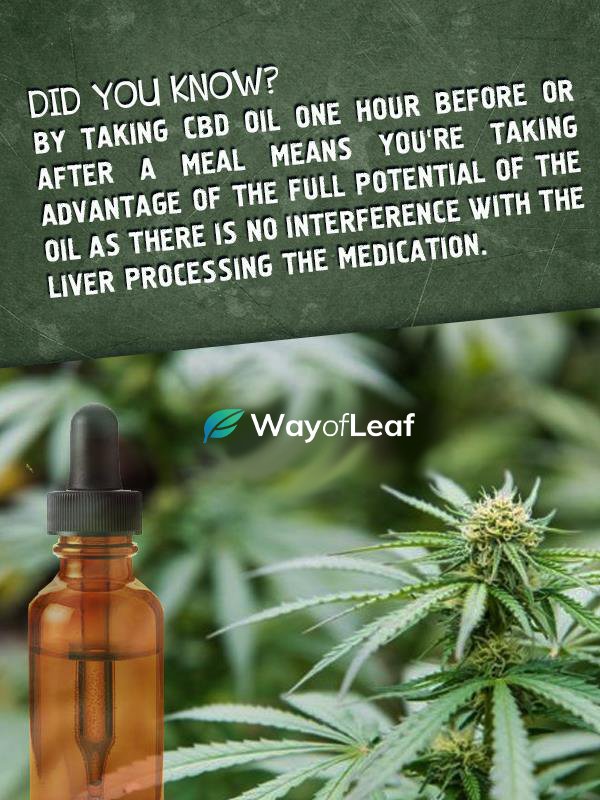
In addition to CBD oils, though, there are several other effective ways to take CBD. It is commonly used in vape pens as a CBD e-liquid. You can also try it as an infused topical in creams, lotions, and salves. Yet another option is to ingest it via edibles (CBD gummies are very popular) or even cook with the cannabinoid.
There are also cannabis strains, such as ACDC, Charlotte’s Web, and Cannatonic, with high CBD levels and minimal THC. Hemp joints are ideal if you want to replicate the act of smoking a cannabis joint.
Where Can I Get CBD Hemp Oil Products?
It is necessary to watch out for shoddily manufactured CBD products. Many of the less expensive products use techniques other than CO2 extraction to take CBD from the raw hemp.
One of the cheapest and most widely used extraction methods involves butane and propylene glycol (PG). PG produces carcinogenic (cancer-causing) compounds, such as formaldehyde and acetaldehyde, when heated beyond a certain temperature.
DID YOU KNOW? CBD oils with propylene glycol could produce carcinogenic formaldehyde when heated in vape pens.
It is a crowded marketplace and one that’s difficult to navigate. However, we have written numerous detailed reviews on some of the best places to buy CBD oil. Such informative articles should give you the information you need and save you some time.
There are many great companies and high-quality, effective products available. Do your homework, spend the extra money, and go with a reputable brand, and you won’t be disappointed.
Final Thoughts About CBD and Cannabis
We hope this article has proven engaging and informative and answered many (if not all) of the questions you had about CBD oil.
We expect CBD to grow in popularity as clinical research continues and doctors become more accustomed to the cannabinoid’s possible therapeutic effects.
![How to Prevent Developing a Cannabis Tolerance [Must-Know Trick]](https://wayofleaf.com/wp-content/uploads/2018/01/wol_reduce-marijuana-tolerance_1920x450-640x225.jpg)


![Hemp vs. Linen [Which Is Best]](https://wayofleaf.com/wp-content/uploads/2019/03/wol_hemp-vs-linen-640x225.jpg)


![Does Weed Go Bad? [Explained]](https://wayofleaf.com/wp-content/uploads/2019/08/wol-banner-does-weed-go-bad-640x225.jpg)
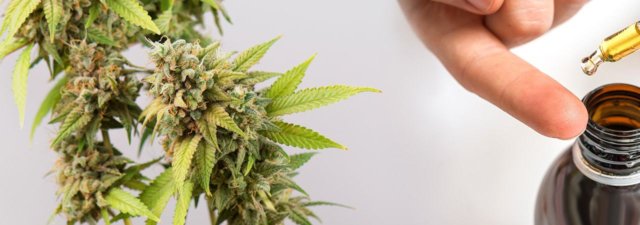
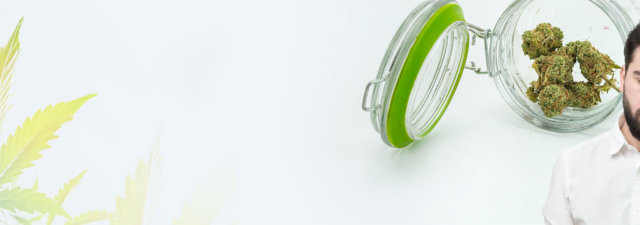
![Should You Smoke Cannabis Every Day? [Pros & Cons]](https://wayofleaf.com/wp-content/uploads/2019/03/wol_1920x450-38-640x225.jpg)


